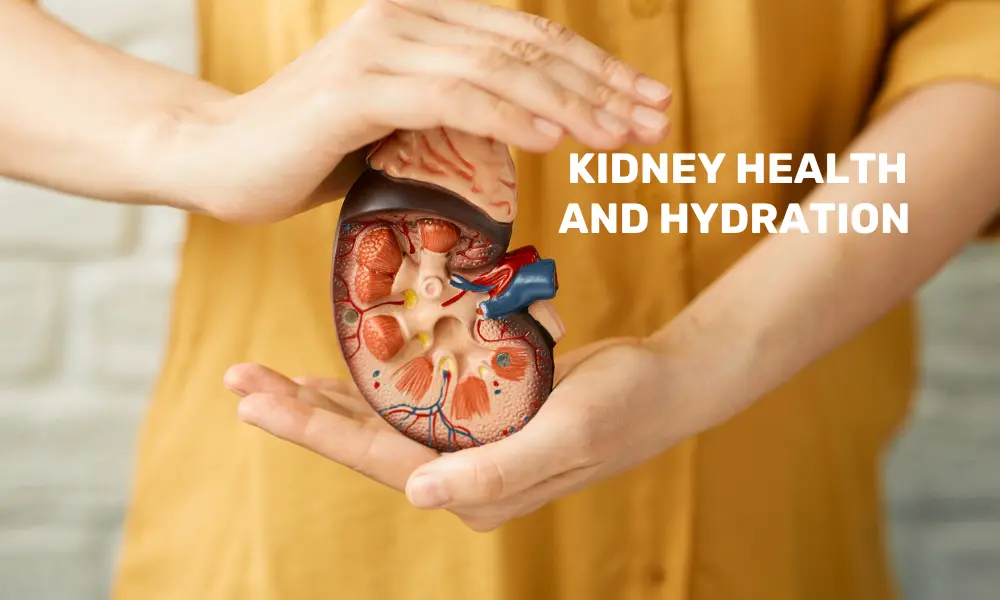Drinking enough water and staying well hydrated are some of the most crucial factors for kidney health and preventing kidney stones. One must be aware of the symptoms of kidney disease and how hydration impacts our kidney health.
Silent symptoms that indicate kidney disease:
Since kidney disease often progresses without noticeable symptoms, recognizing early warning signs is critical. Here are eight symptoms that should never be ignored.
Frequent urination at night: Occasional night-time urination is normal, but if it becomes frequent, it may indicate early kidney dysfunction.
Cola-coloured urine: Dark, brown urine is a red flag, suggesting serious kidney damage or blood leakage into the urine.
Foamy urine: While mild foaming is normal, excessive foam could indicate protein leakage, a sign of kidney damage.
Swelling of legs: When the kidneys fail to excrete excess water, it accumulates in the body, causing swelling in the legs and puffiness around the eyes.
Persistent vomiting: Unexplained vomiting lasting several days can occur due to rising toxin levels in the blood caused by kidney failure.
High blood pressure in young adults: Failing kidneys release chemicals that trigger high blood pressure, which is often resistant to conventional treatments.
Intractable itching: Severe, persistent itching that doesn’t respond to treatment is often linked to the buildup of toxins in kidney failure.
Blood in urine: This is never a normal occurrence and should be immediately investigated, as it may indicate infections, kidney stones, or even kidney disease.
If you experience any of these symptoms, you must consult a specialist immediately. Further, Misconceptions about kidney disease and dehydration can lead to poor health management and occasionally more serious issues. Here is why drinking water is not the only way to maintain healthy kidneys.
Myth 1: If you have renal illness, avoid the intake of fluid
Fact: Depending on the stage of illness, people with kidney disease may need to modify their fluid consumption. But this does not imply they should altogether avoid water. It frequently comes down to balancing, with medical professionals making tailored suggestions based on each patient’s condition.
Myth 2: Dehydration is indicated by dark yellow urine
Facts: Urine should be pale when the body is well hydrated. To maintain enough hydration, it may be necessary to increase water consumption if urine is continuously dark yellow.
Myth 3: To avoid dehydration, consume as much water as possible
Fact: Excessive hydration, also referred to as water intoxication, can dilute electrolytes and result in hyponatremia. Drinking a litre of water quickly in the morning is a common mistake that can cause frequent urination, occasionally blurred vision, and mild headaches. Drinking 200-250 cc of water every two to three hours is better. Hydration is about maintaining equilibrium.
Myth 4: Kidney illness can be prevented or cured by drinking a lot of water
Fact: Drinking too much water won’t treat kidney disease, even though it’s crucial for kidney health and preventing stones. Underlying diseases, such as diabetes and high blood pressure, or heredity, can contribute to the progression of chronic kidney disease (CKD). Water consumption should be limited if CKD develops, as water remains in the body and causes edema.
Myth 5: Tea and coffee cause dehydration
Fact: The fluid in coffee or tea helps with hydration, even if caffeine is a mild diuretic. Most people do not become dehydrated when they consume moderate amounts of caffeinated beverages, although limiting consumption to one or two cups of tea or coffee is best.
Myth 6: Wait until thirsty before drinking water
Fact: Thirst is frequently a delayed symptom of dehydration. Your body may already be somewhat dehydrated by the time you experience thirst. Even if not thirsty, drinking water often throughout the day is essential.
Myth 7: Only those with pre-existing kidney issues are affected by dehydration
Fact: Although dehydration can exacerbate pre-existing kidney illnesses, anybody can be at risk, particularly in hot weather, during vigorous exercise, or if they are unwell. Even in healthy people, severe dehydration can cause kidney injury.
Staying hydrated is crucial for general health, but it is only one component of kidney care. It’s also critical to maintain a healthy lifestyle, eat a balanced diet, and watch for kidney disease symptoms through kidney function tests, regular urine exams, and an ultrasound of the kidney, ureter, and bladder (KUB) region.
Disclaimer: This article is meant for informational purposes only and must not be considered a substitute for professional advice.





